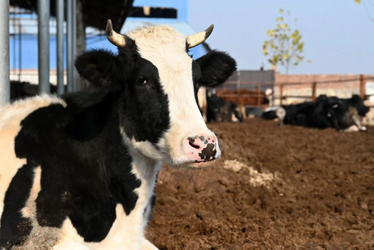
- China claims it's cloned three cows that make up to 18 metric tons of milk per year.
- "Super cows" are hard to breed since they're identified at the end of their lives, per state-affiliated media.
- The scientists say they plan to build a herd of 1,000 super cows in the next two to three years.
The three calves were birthed in the Ningxia region by a team from the Northwest University of Agricultural and Forestry Science and Technology, just before the Chinese New Year began on January 22, per local outlet Ningxia Daily.
The calves were cloned from "super cows" — unusually productive cows that can make 18 metric tons of milk per year and 100 tons of milk in their lifetimes, pro-government tabloid The Global Times reported.
In comparison, the average milk-producing cow in the US makes around 10.8 metric tons of milk per year, per the US Department of Agriculture's latest figures.
Only five in 10,000 of common cattle breeds in China can produce as much milk as a super cow, said the scientists, per The Global Times.
And because cattle are only designated as super cows at the end of their lives, it's difficult to breed them after they've been identified, said the project lead, Jin Yaping, per the outlet.
Jin said his team "reincarnated" the super cows to help bolster China's local milk production, which has struggled to meet domestic demand amid surging feed costs. China also heavily relies on importing cattle from Europe.
Jin's team used tissue from the cows' ears to make an initial batch of 120 cloned embryos, 42% of which were successfully impregnated in surrogate cows and 17.5% of which remained fertile after 200 days, The Global Times reported.
The scientists highlighted how one of the calves had the exact same skin pattern as its predecessor, reported the outlet.
"We plan to take two to three years to build up a herd comprised of over 1,000 super cows," Jin said, per The Global Times.
Jin did not immediately respond to Insider's request for comment.
https://www.businessinsider.com/china-clones-3-cows-make-more-milk-claim-supercow-2023-2 (Archive)